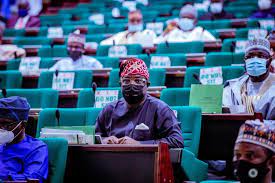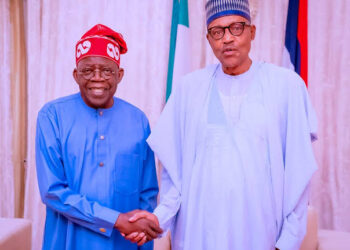As the April 7 International Day for the commemoration of the Rwandan genocide draws nearer, the High Commissioner of Rwanda to Nigeria, Ambassador Joseph Habineza, in this recent interview tells INNOCENT ODOH, how the colonial masters especially the Belgians, distorted the existing structures in his country and introduced divisive strategies that eventually triggered the genocide. He laments the inability of the international community to act fast to prevent the carnage which killed over 800,000 of the Tutsi ethnic group and moderate Hutus, when Hutu extremists went on rampage after the murder of President Juvenal Habyarimana in April 1994. He also speaks on the belated trial of some of the genocide suspects in France. Excerpts:
The French have started the trial of one perpetrator of the genocide in Rwanda. Do you think that they have started showing signs to atone for their alleged role of shielding genocide perpetrator?
Actually I can say that it is a good sign, a good development that after 20 years the French authorities have decided to bring a genocide suspect to face justice. But we have to wait and see what will come out, it just a trial.
The French have been blamed for not doing enough to prevent the genocide and they are also criticized for shielding some of the perpetrators. What is your reaction to this after all these years?
After these years you know we have been denouncing, we have been shouting not against their inability but their inactivity to bring the suspects to trial. Suddenly and especially after 20 years , they have started taking some suspects to justice, it is something that we commend but we want more, because there are many genocide suspects still hiding in France.
Certain individuals under the UN System are also blamed for not acting to prevent the genocide like the former UN Secretary General Boutros Boutros Ghali; do you think they should also be tried for their actions or inactions?
While as you can say some jobs have immunity, for instance I am an ambassador I have immunity. Everybody has criticized Ghali for the mistake of not acting quickly to prevent the genocide, which is already okay. Because once you don’t do your job, people will judge what you did. So I don’t think it will be appropriate to put him under trial. Recently in US during the conference on 20 years of commemoration, they mentioned it and people said that General Delaware who was the commander of the UN forces that time sent a fax of SOS on the impending genocide and that fax disappeared. It was either thrown into the thrash or ignored. You can never hide history. Where ever (Ghali) is now, when he remembers what happened in Rwanda, he must regret.
Rwanda has risen from the ashes of genocide to embrace a new concept of national reconciliation and unity. How did you manage the crisis such that Rwanda is now a promising country after the genocide?
What is common to Rwandans is bigger that what differentiates them. In Rwanda there is no Hutu language, there is no Hutu culture, in much the same way there is no Tutsis language, land or culture. The people of Rwanda are one people. All these differences are just what people manipulated and of course we the Rwandans were also guilty because we were naïve. They made us look as if we are different. Unfortunately generalisation causes problem. For instance in Nigeria the President Good luck Jonathan is an Ijaw, but that does not mean that all the Ijaws are in the Aso rock.
Obama is a Black President of America but that does not mean that all the Black Americans are ruling the US. I think there are always forces pushing Africa to always manipulate tribes, and manipulating Africa to do these unwholesome things. We must focus on what will unite and develop us. All these are as a result of poverty in Africa because once people are productive, once they are making money, they cannot fight.
Can you link this genocide to the colonial origin Rwanda?
First of all, the colonialists were the major trigger of what happened to Rwanda. They came and discontinued our structures, how we were behaving, our beliefs, how we were relating to each other, and introduced a divisive system in our midst. They first started giving favours to the Tutsis to oppress the Hutus, and when the Tutsis started asking for independence, they turned and started to favour the Hutus asking them to push away the Tutsis, that led to the 1959 Revolution, which killed a lot of people and sent many others into exile. The political authorities that took power from the king after 1959 started oppressing and killing the Tutsis, as if they are non- citizens of Rwanda.
Some of the Tutsis who were living in different countries decided to come home but they were also subjected further molestation some of these developments created the background for the genocide.
What was the role of the African union in the Rwandan Genocide, why did AU watch as Rwanda burned?
AU in 1994 has no power to stop the genocide, such that even if they have the will, they have no means to organize or send armies to stop the problem; it was just the special UN unit which was even withdrawn. The UN mission had a limited mandate they were there but their mandate was just to observe. The Nigerians who stayed behind protected the people but they could not really fight the killing militia. If the militia had been disarmed at least about 700, 000 people would have been saved. We really need a special force with means because if the force is there without means then there is no need.
Rwanda is bordered by Burundi which has a population of Hutus and Tutsi as well. We have DR. Congo, where these Hutu murderers ran to when they were expelled from Rwanda, from where they also wanted to come back and take power. Do you think they are still nursing the ambition and how is Rwanda relating with its neighbors?
Between Burundi, Tanzania, Uganda, Kenya and Rwanda we have the East African Community, which is working and really we are striving to have common currency, common customs and others. With DR. Congo, we had some problems because of the militia. You know the militia ran into DRC from where they came to attack Rwanda. We have had some joint operation to disarm them, which worked but after some time it would not work. But recently the UN said that it’s going to disarm the militia, and former soldiers who are still in DR Congo so that there will be peace.



